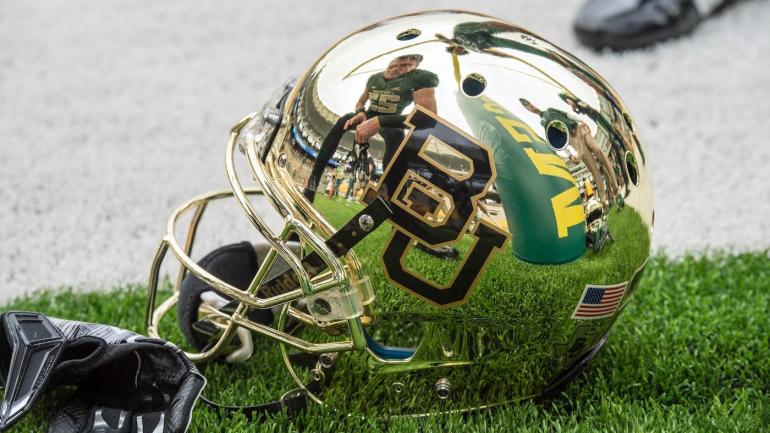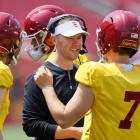
Baylor has received a formal notice of allegations from the NCAA in the wake of the university's ongoing sexual assault scandal, a Baylor source told CBS Sports. The Fort Worth Star-Telegram's Mac Engel first reported the notice, which has been in the university's possession for 2-3 weeks.
The alleged violations are considered major in nature and include a lack of institutional control and failure to promote an atmosphere of compliance by former coach Art Briles.
What's not clear is what particular NCAA bylaws were allegedly violated. Nineteen former football players were accused of sexual or domestic assault by 17 women from 2011-16. Lawsuits filed alleged higher numbers. Those cases were considered legal in nature and huge moral and ethical issue for Baylor, a flagship school of the Baptist faith.
Sources indicated that, specifically, players may have been allowed to play and/or practice in violation of NCAA rules while receiving extra benefits. What those extra benefits might have been aren't exactly clear. If those players were allowed on the field after being accused, they would have had to go through the school's regular disciplinary process. Whether that process would have required Briles to remove them from play while their cases were being adjudicated is not certain.
The notice doesn't appear to be similar to the Penn State case. In that situation, the NCAA Board of Directors said there was a violation of the NCAA's constitution in penalizing Penn State in the Jerry Sandusky scandal. That workaround did not require a formal investigation and enforcement process.
As is the normal course of action, Baylor has 90 days to respond to the NCAA notice of allegations. From there, the NCAA will reply within 60 days, and a final resolution should be met in early 2019 following a hearing with the NCAA Committee on Infractions.
The lack of institutional control infraction usually carries with it major penalties, while a head coach not promoting an atmosphere of compliance often results in a show-cause penalty for that coach.
Baylor has attempted to show contrition and modernize its practices in terms of sexual assault reporting and handling. The NCAA will surely look at its efforts in that area, and while that may help lessen potential penalties, it would be a surprise if it stamped them out completely.
Briles was fired in May 2016 and paid $18 million in compensation by the school. Former athletic director Ian McCaw and president Ken Starr resigned from their respective positions amid an investigation into the scandal.
For now, this remains a wait-and-see situation for all involved.






















